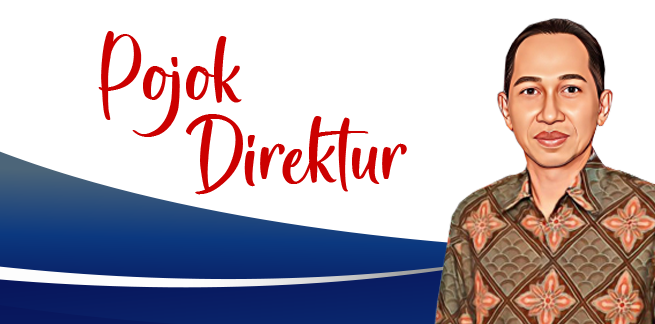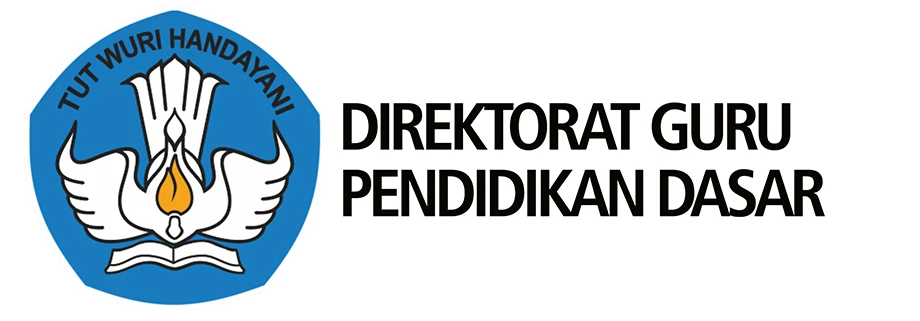Optimalisasi Kompetensi Keberlanjutan: Analisis Reliabilitas dan Validitas Asesmen Pra-Pembelajaran Siswa Sekolah Menengah Pertama
Abstract
The development of pre-learning assessments integrating the Minimum Competency Assessment (AKM) with Education for Sustainable Development (ESD) content is crucial for equipping students with the necessary knowledge and skills to tackle global challenges. This study aims to create a pre-learning assessment instrument that combines AKM and ESD for Business and Energy materials targeted at grade VIII Junior High School students. The study's participants included students from grades VII to IX to test the instrument's generality, utilizing the 4-D model by Thiagarajan et al., comprising definition, design, development, and deployment phases. The final product is a pre-learning assessment instrument tailored for grade VIII semester 2. Data analysis employed qualitative and quantitative descriptive methods using the Rasch model via Winstep 5.7.1 software. Additional analyses, including data triangulation and in-depth interviews with students and teachers, enriched the interpretation of results. The findings revealed that the instrument met high-quality criteria, with an average validation score of 2 (excellent), an instrument reliability of 0,98 (special category), a person reliability of 0,85 (good category), content validity meeting set requirements, and construct validity ranging from 0,53 to 0,71, indicating overall validity.References
Aderinto, E. (2023). Energy Consumption, Environmental Quality and Health Nexus in West African Countries: Implications for Sustainable Development. https://doi.org/10.21203/rs.3.rs-3057950/v1.
Afriana, J. (2022). Pengaruh PjBL STEM terhadap Literasi Sains dan Problem Solving Siswa SMP. Jurnal Didaktika Pendidikan Dasar, 6(2 SE-Articles), 627–638. https://doi.org/10.26811/didaktika.v6i2.551.
Almeida, A.P., Sousa, V., & Silva, C.M. (2021). Methodology for Estimating Energy and Water Consumption Patterns in University Buildings: Case Study, Federal University of Roraima (UFRR). Heliyon, 7(12), 1-16. https://doi.org/10.1016/j.heliyon.2021.e08642.
Arif, N., Emerita, M., & Shrestha, I. (2022). The Socio-economic and Geographic Related Factors Affecting Electricity Consumption in Urban Households: A Case Study of Kota Tengah, Gorontalo. BT - Proceedings of the Unima International Conference on Social Sciences and Humanities (UNICSSH 2022), 1239–1246. https://doi.org/ 10.2991/978-2-494069-35-0_149.
Azeiteiro, U.M., Bacelar-Nicolau, P., Caetano, F.J.P., & Caeiro, S. (2015). Education for Sustainable Development Through E-Learning in Higher Education: Experiences from Portugal. Journal of Cleaner Production, 106, 308–319. https://doi.org/10.1016/j.jclepro. 2014.11.056.
Bilous, L. (2021). Minimization Of Energy Efficiency Barriers in the Context of Optimization of Management Decisions in the Process of Sustainable Development. Technology Audit and Production Reserves, 3(4), 22-27. https://doi.org/10.15587/2706-5448.2021.235888
Bramwell-Lalor, S., Kelly, K., Ferguson, T., Hordatt Gentles, C., & Roofe, C. (2020). Project-based Learning for Environmental Sustainability Action. Southern African Journal of Environmental Education, 36, 57–72. https://doi.org/10.4314/sajee.v36i1.10
Brown, G.T.L. (2019). Is Assessment for Learning Really Assessment? Frontiers in Education, 4, 64. https://doi.org/10.3389/feduc. 2019.00064.
Cuadros-Rodríguez, L., Pérez-Castaño, E., & Ruiz-Samblás, C. (2016). Quality Performance Metrics in Multivariate Classification Methods for Qualitative Analysis. TrAC Trends in Analytical Chemistry, 80, 612–624. https://doi.org/10.1016/j.trac.2016.04.021
DeLuca, C., Chapman-Chin, A. E. A., LaPointe-McEwan, D., & Klinger, D. A. (2018). Student perspectives on assessment for learning. The Curriculum Journal, 29(1), 77–94. https://doi.org/10.1080/ 09585176.2017.1401550.
DeLuca, C., Chapman-Chin, A., & Klinger, D. A. (2019). Toward a Teacher Professional Learning Continuum in Assessment for Learning. Educational Assessment, 24(4), 267–285. https://doi.org/10.1080/ 10627197.2019.1670056.
Fajar, A., Pandikar, E., & Rahadian, D. (2022). Effectiveness of Social Science Learning on Socialization of Earthquake Disaster Potential and its Mitigation to Students of Junior High Schools in the City of Bandung. Jurnal Kependidikan: Jurnal Hasil Penelitian Dan Kajian Kepustakaan Di Bidang Pendidikan, Pengajaran Dan Pembelajaran, 8(3), 689-702. https://doi.org/10.33394/jk.v8i3.5400
Gerring, J. (2017). Qualitative methods. Annual Review of Political Science, 20, 15–36. https://doi.org/10.1146/annurev-polisci-092415-024158
Glavič, P. (2020). Identifying Key Issues of Education for Sustainable Development. In Sustainability, 12(16), 6500. https://doi.org/ 10.3390/su12166500.
Haque, M.N., Bakshi, A., & Mobin, F. (2021). Assessing the Factors of Energy Consumption Behavior in Urban Area. Journal of Civil Engineering, Science and Technology, 12(2), 124–140. https://doi.org/10.33736/jcest.3976.2021.
Li, C., Ding, Z., Yi, J., Lv, Y., & Zhang, G. (2018). Deep Belief Network Based Hybrid Model for Building Energy Consumption Prediction. Energies, 11(1), 242. https://doi.org/10.3390/en11010242.
López-Sosa, L. B., Alvarado-Flores, J.J., del Niño Jesús Marín-Aguilar, T., Corral-Huacuz, J.C., Aguilera-Mandujano, A., Rodríguez-Torres, G.M., Morales-Máximo, M., del Carmen Rodríguez-Magallón, M., Alcaraz-Vera, J.V, Ávalos-Rodríguez, M.L., Rutiaga-Quiñones, J.G., Rodríguez-Olalde, N.E., Flores-Armenta, M.D., & García, C.A. (2021). COVID-19 Pandemic Effect on Energy Consumption in State Universities: Michoacan, Mexico Case Study. Energies, 14(), 7642. https://doi.org/10.3390/en14227642.
McLeskey, J., Billingsley, B., Brownell, M. T., Maheady, L., & Lewis, T. J. (2019). What are high-leverage practices for Special Education Teachers and why Are they Important? Remedial and Special Education, 40(6), 331–337. https://doi.org/10.1177/07419325 18773477.
Mehrjerdi, H. (2020). Resilience-Uncertainty Nexus in Building Energy Management Integrated with Solar System and Battery Storage. IEEE Access. https://doi.org/10.1109/ACCESS.2020.2981923
Miles, M.B., & Huberman, A.M. (1994). Qualitative Data Analysis: An Expanded Sourcebook. London: Sage Publications.
Nazari-Heris, M., & Asadi, S. (2023). Reliable Energy Management of Residential Buildings with Hybrid Energy Systems. Journal of Building Engineering, 71, 106531. https://doi.org/10.1016/ j.jobe.2023.106531.
Pedram, O., Asadi, E., Chenari, B., Moura, P., & Gameiro da Silva, M. (2023). A Review of Methodologies for Managing Energy Flexibility Resources in Buildings. Energies, 16(17), 6111. https://doi.org/10.3390/en16176111
Popli, S., Jha, R.K., & Jain, S. (2019). A Survey on Energy Efficient Narrowband Internet of Things (NBIoT): Architecture, Application and Challenges. IEEE Access, 7, 16739–16776. https://doi.org/ 10.1109/ACCESS.2018.2881533.
Pothitou, M., Hanna, R.F., & Chalvatzis, K.J. (2016). Environmental Knowledge, Pro-Environmental Behaviour and Energy Savings in Households: An Empirical Study. Applied Energy, 184, 1217–1229. https://doi.org/10.1016/j.apenergy.2016.06.017.
Rahman, A.A. (2020). Pengembang Media Pembelajaran Aquaponik-Induksi Elektromagnetik untuk Meningkatkan Literasi Sains Siswa Melalui Pembelajaran Berbasis STEM. Jurnal Didaktika Pendidikan Dasar, 4(2), 357–370. https://doi.org/10.26811/ didaktika.v4i2.129.
Rahman, A.A. (2022). Integrasi Computational Thinking dalam Model EDP-STEM untuk Meningkatkan Kemampuan Berpikir Kritis Siswa SMP. Jurnal Didaktika Pendidikan Dasar, 6(2), 575–590. https://doi.org/10.26811/didaktika.v6i2.409
Redman, A., & Wiek, A. (2021). Competencies for Advancing Transformations Towards Sustainability. Frontiers in Education, 6, 785163. https://doi.org/10.3389/feduc.2021.785163
Redman, A., Wiek, A., & Barth, M. (2021). Current Practice of Assessing Students’ Sustainability Competencies: A Review of Tools. Sustainability Science, 16, 117–135. https://doi.org/10.1007/s11625-020-00855-1
Rej, S., & Nag, B. (2022). Does Educational Progress Impact Energy Consumption? A Causality Test for India. International Journal of Energy Sector Management, 16(3), 414–428. https://doi.org/ 10.1108/IJESM-07-2020-0021.
Schellekens, L.H., Bok, H.G.J., de Jong, L.H., van der Schaaf, M.F., Kremer, W.D.J., & van der Vleuten, C.P.M. (2021). A Scoping Review on the Notions of Assessment as Learning (AaL), Assessment for Learning (AfL), and Assessment of Learning (AoL). Studies in Educational Evaluation, 71, 101094. https://doi.org/10.1016/j.stueduc.2021.101094.
Soltani, M., Rahmani, O., Beiranvand Pour, A., Ghaderpour, Y., Ngah, I., & Misnan, S.H. (2019). Determinants of Variation in Household Energy Choice and Consumption: Case from Mahabad City, Iran. Sustainability, 11(17), 4774. https://doi.org/ 10.3390/su11174775.
Sukardi, H.M. (2021). Metodologi Penelitian Pendidikan: Kompetensi Dan Praktiknya (Edisi Revisi). Bumi Aksara.
Taheri, B., Jabari, F., & Foroud, A.A. (2023). A Green Cogeneration Microgrid Composed of Water-Source Heat Pumps, a Gravity Energy Storage, and a Bio-Fueled Gas Turbine: Design and Techno-Economic Optimization. Sustainable Cities and Society, 95, 104594. https://doi.org/10.1016/j.scs.2023.104594
Taheri, S., Akbari, A., Ghahremani, B., & Razban, A. (2022). Reliability-Based Energy Scheduling of Active Buildings Subject to Renewable Energy and Demand Uncertainty. Thermal Science and Engineering Progress, 28, 101149. https://doi.org/10.1016/j.tsep.2021.101149
Thiagarajan, S. (1974). Instructional Development for Training Teachers of Exceptional Children: A Sourcebook. ERIC. https://eric.ed.gov/ ?id=ED090725.
Tokuyama, M., Seino, J., Sakuraba, K., & Suzuki, Y. (2021). Possible Association of Energy Availability with Transferrin Saturation and Serum Iron during Summer Camp in Male Collegiate Rugby Players. Nutrients, 13(9), 2963. https://doi.org/ 10.3390/nu13092963.
Velde, S.J. te, Singh, A., Chinapaw, M., De Bourdeaudhuij, I., Jan, N., Kovacs, E., Bere, E., Vik, F. N., Bringolf-Isler, B., Manios, Y., Moreno, L., & Brug, J. (2014). Energy Balance Related Behaviour: Personal, Home- and Friend-Related Factors among School Children in Europe Studied in the ENERGY-Project. PLOS ONE, 9(11), e111775. https://doi.org/10.1371/ journal.pone. 0111775.
Venn, R., Perez, P., & Vandenbussche, V. (2022). Competencies of Sustainability Professionals: An Empirical Study on Key Competencies for Sustainability. Sustainability, 14(9), 4916. https://doi.org/10.3390/su14094916.
Wardani, N.E., Suwandi, S., Ulya, C., & Setiyoningsih, T. (2023). Differences in Learning Indonesian Literature in the 2013 Curriculum and the Independence Curriculum in Junior High Schools in Indonesia. KnE Social Sciences, 8(18), 1209-1218. https://doi.org/10.18502/kss.v8i18.14322.
Zhao, J., Thinh, N. X., & Li, C. (2017). Investigation of the Impacts of Urban Land Use Patterns on Energy Consumption in China: A Case Study of 20 Provincial Capital Cities. Sustainability, 9(8), 1383. https://doi.org/10.3390/su9081383.
Published
Issue
Section
License
Copyright (c) 2024 Jurnal Didaktika Pendidikan Dasar

This work is licensed under a Creative Commons Attribution-ShareAlike 4.0 International License.
















